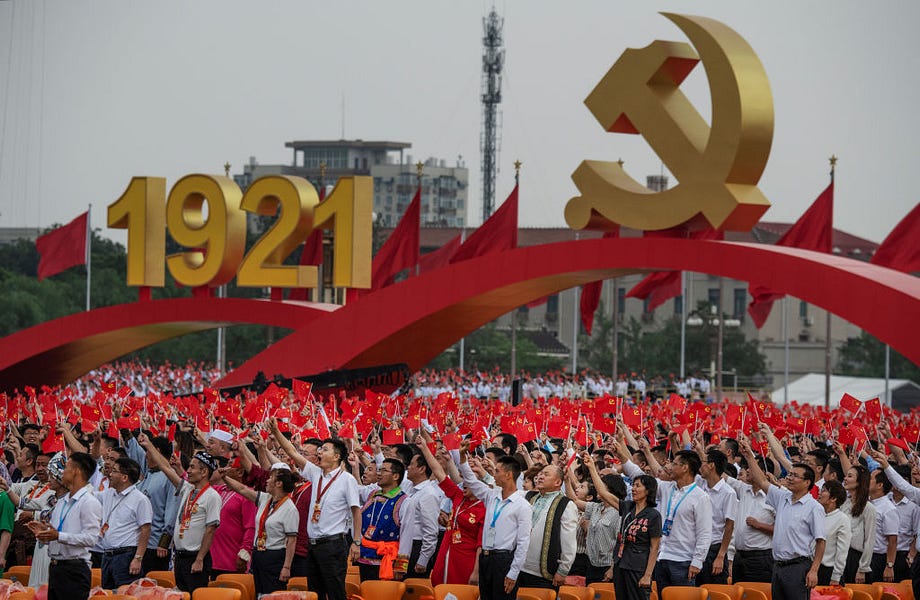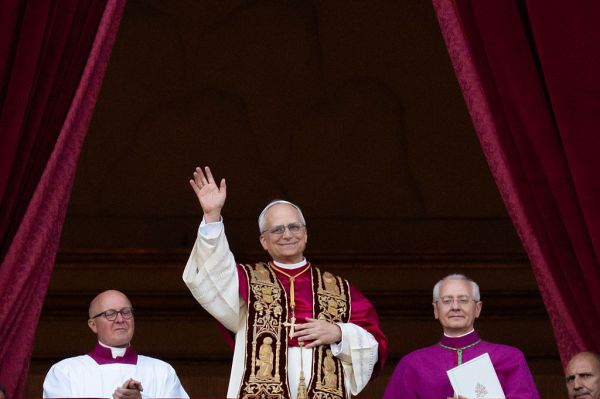In 1936, American journalist Edgar Snow traveled from Beijing to the mountains of Yan’an to do what no Westerner had successfully done: detail the inner workings of China’s elusive 15-year-old Communist Party. For four months, Snow lived among Red Army leadership at its stronghold in Pao An, where he was afforded the rare opportunity to confer regularly with Mao Zedong at one of the turning points of the Chinese Civil War.
The English-speaking world’s first eyewitness introduction to the Chinese Communist Party (CCP) was a positive one. Upon his return to China’s nationalist-occupied territory in the east, Snow set out to chronicle his encounters to an unfamiliar audience in his book, now regarded as at least in part editorially driven by communist leadership, Red Star Over China.
Snow’s account told the gripping story of a rag-tag group of dreamers, warriors, and ideologues all striving toward the collective goal of “national emancipation” from the constraints of imperialism, corruption, and economic exploitation. China’s communists, Snow argued, offered the Chinese people a constructive alternative to Japanese imperialism and nationalist misgovernance.
Like the many party adherents who would eventually contribute to the chairman’s ferocious rise, Snow was enraptured by Mao’s cult of personality:
There would never be any one ‘savior’ of China, yet undeniably one felt a certain force of destiny in Mao. It was nothing quick or flashy, but kind of solid elemental vitality. One felt that whatever there was extraordinary in this man grew out of the uncanny degree to which he synthesized and expressed the urgent demands of millions of Chinese, and especially the peasantry. If their ‘demands’ and the movement which was pressing them forward were the dynamics which could regenerate China, then in that deeply historical sense Mao Tse-tung might possibly become a very great man.
Hindsight is 20/20. But as the CCP celebrates its centenary this month, Mao’s vision is in some ways omnipresent in its modern iteration. “Correcting mistaken ideas” through coercion and or propaganda, a cornerstone of Mao’s policies enumerated in Little Red Book, continues to function as the party’s guiding principle 45 years removed from his leadership. While the party’s conception of the ideal idea has shifted, its emphasis on absolute adherence to party orthodoxy has not.
“There’s only one view allowed and it comes from the party. Others may hold different views, but they’re muted and it’s not very gratifying or career-enhancing to take on the party inside China. You get no points for creativity. It’s the source of all power inside China,” said Patrick Cronin, Asia-Pacific Security Chair at Hudson Institute. “The state education system has one curriculum. If you want to get ahead in life, if your family wants to get in, you hope one of them is a member of the party.”
“There’s been a relatively stable focus on ideological work—on changing the ideas, both of party members and of the broader population,” Professor Michael Szonyi, director of Harvard University’s Fairbank Center for Chinese Studies, told The Dispatch. “The party has always emphasized that there are correct ways of thinking, and that people have to think in those ways.”
CCP General Secretary and Chinese President Xi Jinping, meanwhile, has resurrected several of the party’s fixtures that had lain dormant since Mao’s death in 1976. His rebranding of the CCP as a nationalist organization, for instance, borrows from Mao’s own reluctant embrace of the nation state—a concept ideologically at odds with Marxist doctrine.
“For us defeatism is a crime and to strive for victory in the War of Resistance is an inescapable duty. For only by fighting in defense of the motherland can we defeat the aggressors and achieve national liberation,” Mao wrote in 1939, in the midst of the Chinese Civil War and World War II. “And only by achieving national liberation will it be possible for the proletariat and other working people to achieve their own emancipation.”
But in many fundamental ways, the party in no way resembles the start of its 100-year history—and it’s this adaptability that allows the CCP to weather a changing world despite outmoded foundational goals.
“The Communist Party that we see today in 2021 endures not because of the objective power of its ideas and not because it was inevitably the only solution to the political, social, and economic problems that China has faced over a hundred years,” said Szonyi. “The stability of the party rests on its ability to constantly reinvent itself—to look at its own history, identify mistakes, and correct them.”
But with the CCP’s celebrations this month, officials have praised the preordained success of the country, grounding its continued survival in the idea of communist longevity. “Looking back on the party’s 100-year history, we can see why we were successful in the past and how we can continue to succeed in the future,” Xi said in his July 1 speech. “This will ensure that we act with greater resolve and purpose in staying true to our founding mission and pursuing a better future on the new journey that lies before us.”
In actuality, Szonyi explained, much of the party’s founding and durability have more to do with “lucky breaks” and willingness to diverge from ideology than attachment to it.
When China’s communists first assembled, for example, they sought to recruit and organize the country’s industrial workers to carry out the revolution. The problem? China’s industrial working class made up a negligible percentage of its overall population in the 1920s. When Chiang Kai-shek’s nationalist government drove the group out of Shanghai and into the countryside, it was forced to rebrand to a party for the agrarian peasants.
The history of the People’s Republic of China post-founding is dotted with similar stories—of instances when fortuitous circumstances or improvisation contented (or quieted) a discontented domestic population or staved off conflict with global competitors. Its shift away from Mao’s cult of personality and toward rapid economic development in the 1970s, for instance, strengthened the party despite an obvious departure from Marxist ideology.
Another challenge the party has been forced to contend with is the advent of the digital age, and the instant connection of its citizenry to the West. But in this too the CCP has successfully adjusted to maximize repression and minimize backlash.
“The internet was supposed to herald the end of authoritarian regimes, because they’d no longer be able to control the flow of information,” Szonyi said. “Well, it turns out that the Chinese Communist Party and the Chinese government have actually been pretty extraordinarily effective at controlling the flow of information without actually undermining the economic benefits of networking.”
“It’s a phenomenal potential exchange of information, but data and information don’t necessarily make for truth or clear-headed thinking,” Cronin told The Dispatch. “The Chinese people still have access to information from the outside world, but it’s highly filtered, censored, regulated, disciplined, and there are incentives and disincentives that make it difficult to absorb.”
And in many ways, technological advancements have actually aided in the Chinese government’s subordination of its own populace. Social control initiatives—like facial recognition software and the social credit system—reward behavior the CCP deems beneficial and punish crime and other transgressions. Sophisticated online surveillance systems allow the party to track down dissidents and censor undesired speech.
“Both technology and global trade have enabled communist China to be more tyrannical, more controlling of the society,” Zhou Fenguo, a student leader during the Tiananmen Square protests, told The Dispatch. “Personal freedom is definitely much worse than in the ’80s on many issues, mostly social.”
But when outside information does slip through the cracks, its effect is felt forcefully and immediately. Zhou caught a glimpse of this process earlier this year, when Chinese internet users temporarily gained access to Clubhouse—a live audio app—and eagerly tuned in to hear about his experiences at Tiananmen. The topic, like the government-created famine of the 1950s and 60s, is strictly off-limits online and in China’s education system.
While the CCP maintains the appearance of popular domestic support to outsiders, Zhou views some of its more repressive practices as the party’s recognition of its own fragility.
“From my experience interacting with Chinese activists and others in China, I know there’s very strong criticism that’s been suppressed. That’s why they spend so much money on this so-called stabilization project. They’re spending more money just to defend the regime against its own people than on the national defense, which is already a huge number,” Zhou said. “To me, it’s not a sign of confidence or legitimacy. It’s a sign of weakness and political illegitimacy.”







Please note that we at The Dispatch hold ourselves, our work, and our commenters to a higher standard than other places on the internet. We welcome comments that foster genuine debate or discussion—including comments critical of us or our work—but responses that include ad hominem attacks on fellow Dispatch members or are intended to stoke fear and anger may be moderated.
With your membership, you only have the ability to comment on The Morning Dispatch articles. Consider upgrading to join the conversation everywhere.